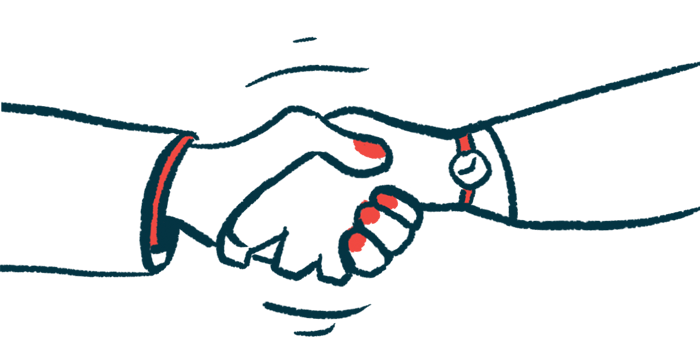Medicine May Open ATA845 Trials to People With AAV Antibodies
Up to 40% of people may have antibodies against lab-modified adeno-associated virus
Written by |

Astellas Gene Therapies has obtained the rights to develop medication that could help reduce preexisting immune responses against the viral carrier used in ATA845, its investigational gene therapy for adults with late-onset Pompe disease (LOPD).
Called IdeXork, or Xork, the investigational medication was developed by Selecta Biosciences, which licensed the therapy to Astellas for an upfront cost of $10 million, with additional payments up to $340 million when certain milestones are met.
Astellas maintains that treatment with Xork before ATA845 is administered may enable patients with preexisting immunity become eligible to participate in clinical trials of the gene therapy.
While Astellas will have sole and exclusive rights to commercialize Xork for Pompe disease, Selecta retains development rights for other indications.
“We are looking forward to partnering with Selecta as we strive to expand our therapies to a broader range of patients living with debilitating diseases, who have limited treatment options,” said Naoki Okamura, chief strategy officer of Astellas, in a company press release. “This agreement provides an opportunity to deliver potentially transformative gene therapy treatments to a specific population of LOPD adult patients who might otherwise be ineligible for clinical trials or treatment with Astellas’ investigational product.”
Pompe disease is caused by mutations in the GAA gene, leading to little or no production of the enzyme acid alpha-glucosidase (GAA), which is needed to break down a large sugar molecule called glycogen. Without the enzyme, glycogen builds to toxic levels, especially inside muscle cells.
ATA845 is a gene therapy designed to provide patients with a working copy of the GAA gene, thereby restoring the ability to produce GAA enzyme. It was originally developed by Audentes Therapeutics.
Previous exposure to AAV may result in immune response
For ATA845 to be effectively taken up by its target tissues — including skeletal and cardiac muscle cells — it’s packaged into a lab-modified adeno-associated virus (AAV), a type of viral carrier, called AAV8.
Because they can be efficiently taken up by human cells without causing disease, AAVs are commonly used as a carrier for gene therapies.
But AAVs also exist naturally, so patients who’ve already been exposed to the natural form of a virus might have a pre-existing immune response against the lab-modified version. These neutralizing antibodies can render a gene therapy ineffective.
“Currently many patients are ineligible for clinical trials with investigational AAV gene therapy products due to the presence of naturally occurring antibodies against AAV gene therapy,” said Carsten Brunn, PhD, president and CEO of Selecta.
That’s the case with the Phase 1/2 FORTIS trial (NCT04174105), which is evaluating the safety and effectiveness of AT845 in up to 12 LOPD patients. A positive test for AAV8 neutralizing antibodies with levels above a specified threshold means not being able to enroll in it.
Up to 40% of people in the general population may have neutralizing antibodies against AAV8, according to a recent study.
Selecta’s Xork is an immunoglobulin G (IgG) protease. It works to break down IgGs, the most common family of antibodies in the bloodstream.
By depleting anti-AAV antibodies, Xork is thought to open a treatment window wherein patients can be dosed with ATA845 — or other therapies that use an AAV — without risking a neutralizing immune response.
Because Xork isn’t derived from a pathogen that can cause disease in humans, as is the case with other developing IgG proteases, it lowers the risk of an immune response against Xork itself, according to Brunn.
“Xork has the potential to expand access to life-changing gene therapies by addressing preexisting immunity to AAV,” Brunn said. “We are thrilled to partner with Astellas as they advance their robust gene therapy portfolio through the clinic.”
In mouse and nonhuman primate models of Pompe, ATA845 led to significant increases in GAA activity, as well as lower glycogen buildup in muscle tissue, fewer signs of muscle damage, and improved muscle strength.
Interim study data from the FORTIS trial showed ATA845 was safe and well tolerated in four adults up to six months after a gene therapy infusion.
The trial was placed on a clinical hold by the U.S. Food and Drug Administration in June 2022 after one patient developed peripheral sensory neuropathy, or damage to the nerves involved in sensory perception. The FDA required more information about the event.






